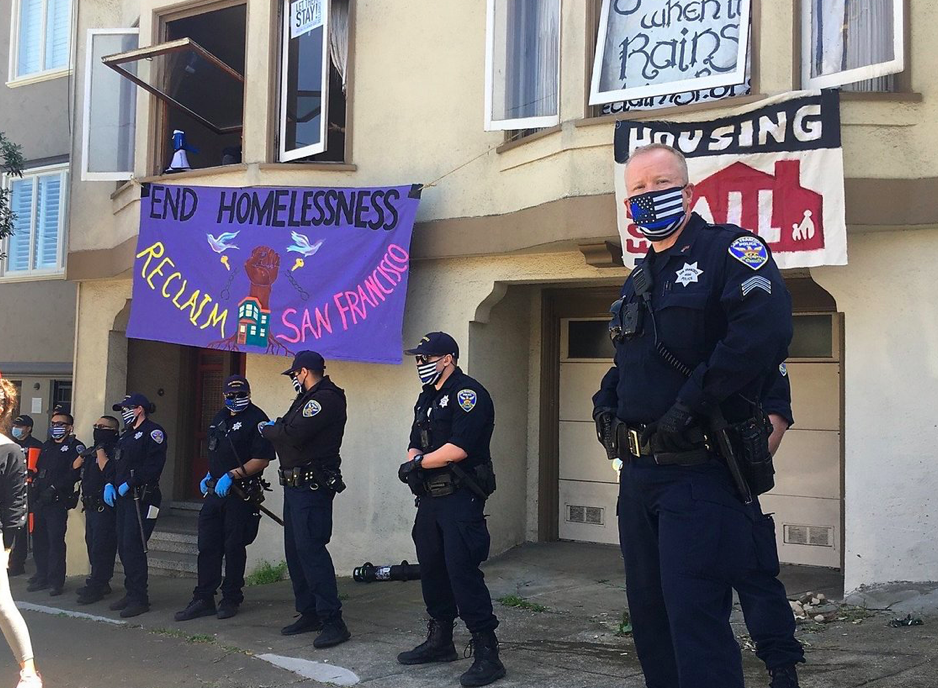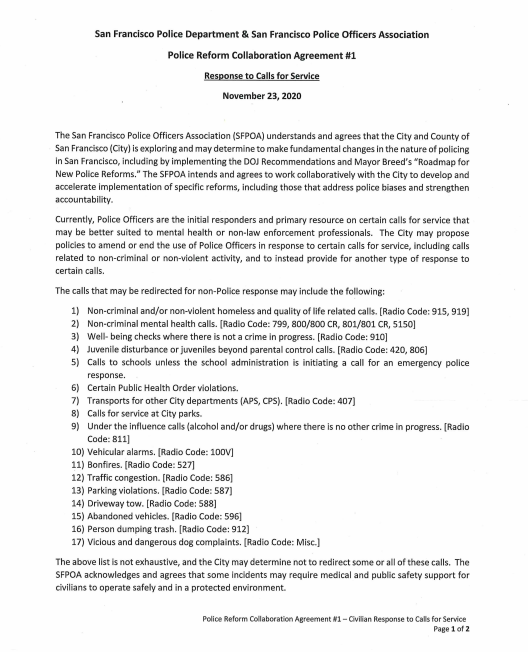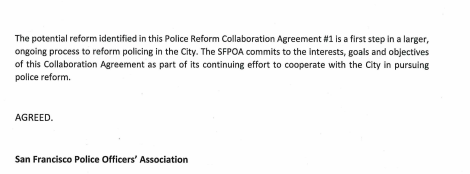The San Francisco Board of Supes gave final approval to a deal with the Police Officers Association after city officials and the POA signed a couple of letters that amount, critics say, to very little at all.

In fact, the two letters, which were given to the supervisors just two hours before the final vote, include no legally binding guarantees that the cops will do anything they haven’t already done.
“It’s a complete nothing,” longtime police-reform advocate John Crew told me. “It’s not even an agreement.”
The letters, copies of which were provided to me after a San Francisco Sunshine Ordinance request, simply confirm what is already in state law and say that the POA will work “collaboratively” on reforms.
Here’s the entire text of the first letter, from Amalia Martinez, acting director of employee relations for the city:
I write to confirm the parties’ understanding and interpretation of Section 4, Negotiations Responsibility, of the 2018-2021 Memorandum of Understanding (MOU) between the City and County of San Francisco (City) and the San Francisco Police Officers Association (SFPOA). That provision requires the City to provide reasonable written notice to the SFPOA on any proposed change within the scope of representation as specified in Government Code section 3504.5, and to meet and confer with the SFPOA about the proposed change if the SFPOA timely requests to do so. The City interprets its meet and confer obligations under this MOU provision to be equivalent to the City’s meet and confer obligations under state law and City Charter section A8.590-4. The City agrees that under state law and Charter section A8.590-4, when the City proposes a change that involves a management rights’ decision that affects POA members, the City must provide notice to the POA and upon request meet and confer on identified effects within the scope of representation. This MOU provision does not expand the City’s bargaining requirements, or require the City to meet and confer on permissive subjects. Please sign below to confirm the POA’s agreement with this interpretation.
That’s it. The POA agrees to accept state law. Nothing more.
Nowhere does the letter say that the POA will stop using “meet and confer” as a way to delay reforms (as it has done repeatedly in recent years). Nowhere does it say that the city can, for example, ban the sort of chokeholds that killed George Floyd or decline to arm cops with Tasers without going through a lengthy meet-and-confer process.
Then there’s the letter the POA sent to the city Here it is:


Again: No promises not to demand meet-and-confer on those changes. No promises to go along with the city’s new policies. Just an agreement to “work collaboratively” on the “interests, goals, and objectives” of the reforms.
And by the way: If the cops agree to shift some calls away from armed law-enforcement response, that’s fine – but it’s going to take money to fund the other responders. That money, by any logic, ought to come out of the Police Department (that is, we won’t need as many cops). Otherwise, we are just paying the cops more to do less work.
Sup. Aaron Peskin told me that the letters, while not exactly “good,” were a step in the right direction and a sign that the POA realizes it can no longer be an obstacle to needed changes in the department. At least, he said, the POA agreed to follow state law on meet and confer – which has not always been the case in the past.
Sup. Dean Preston, who voted against the agreement, said that “in a sense, it’s pretty meaningless, and that’s all we got. We did not achieve meaningful reforms, that’s pretty clear.”
Peskin told me he’s convinced that the POA is changing (not necessarily because the cops want to but because they know they have to). I hope he’s right. I hope this starts a new era of collaborative – and meaningful – police reforms.
But I’m less optimistic than Peskin is.
Crew put it this way: Imagine if the city told the POA that SF would “work collaboratively” and in good faith, following all applicable law, to try to get the cops a raise, at some point in the future, and don’t worry about the specifics, just trust the Mayor’s Office and the supes to do the right thing down the road.
“No way the POA is signing a contract like that,” he said.
But the city just did.





